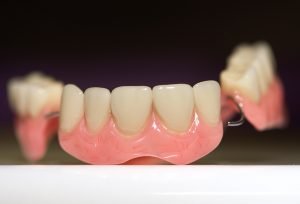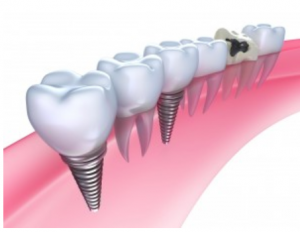Dental Implants vs Dental Bridges: Which Option is Right for You?
Dental Implants vs Dental Bridges: What's the Difference?
Dental Implants vs Dental Bridges do you dread the thought of having a dental bridge? Do you wish that you could smile again and not feel self-conscious whenever you eat out or attend social functions?
If so, then perhaps it’s time that you considered dental implants instead of a dental bridge. A dental bridge is often viewed as a second option for replacing missing teeth when there are problems with your existing set.
It can sometimes be mistaken as an inferior solution to a missing tooth when in fact, it can be the more ideal alternative. In this article, we will explore some key differences between dental bridges and dental implants as well as explain why they are the right option for different people based on their individual needs, circumstances, and goals.

Dental Implants
Dental implants are now the most popular option for replacing missing teeth and maintaining oral health. This is because they are significantly more successful than bridges or crowns at preventing future tooth loss. No matter how old you are, where you are in your life, your health, or your financial situation, dental implants can work. When performed by an experienced dental team, the success rates of dental implants are in the range of 95% to 97%. This means that the remaining 5% of people are due to have a tooth removed for one of the following reasons: their implant fails for some reason, their health or immune system does not support the implant’s success, or something else.
Dental Implants Surgery

Dental implants are a great option for replacing a missing tooth when there is a healthy root below the gum line. The advantage of dental implants is that they offer many benefits that a dental bridge cannot. Implants are not only a long-term solution, but they can also restore your smile, increase your confidence, and improve your oral health. Implants provide the stability and confidence that you need to eat and drink with confidence. It is also important to consider which option is right for you based on your lifestyle, health, and oral condition. Some people may be better off with a bridge due to their age or financial situation. In some cases, it may be a good idea to start with a bridge and then transition to an implant if it works better for your situation.
Dental Bridges
A dental bridge is another option for replacing missing teeth. It is most commonly used when a tooth is missing in an area where there is also damage to the surrounding teeth, such as if an adjacent tooth was affected by a cavity. A dental bridge is built on top of the damaged tooth to provide a support solution. This can also be helpful if you have a large gap between two teeth that are still healthy. The bridge is supported by the healthy teeth and can help to stabilize the space. In some cases, a bridge is an option for people who are younger than 18, who have severely impacted teeth, or who have an extremely large gap.
How a Dental Bridge Works
A dental bridge is constructed from metal and attached to the adjacent healthy teeth. The metal used in a dental bridge is either silver or titanium. Silver is the metal of choice when your teeth are white, or color, because it reflects the light, making it appear whiter.
Titanium is the better option for those with dark colored teeth. The two types of dental bridges are fixed and interproximal. A fixed bridge is fixed in place and can only be removed if it needs to be replaced.
An interproximal bridge is removable and can be adjusted to ensure it is sitting between the neighboring teeth. A dental bridge is often not recommended for people who have difficulty with eating or drinking.
Which type of dental implant is right for you?
There are many choices when you are ready to replace a missing tooth.The age of the patient, and the type of bridge that is being used. While the overall success rate of a dental bridge is about 75%, there can be situations where some of the patients experience failure. One of the biggest reasons for failure is poor oral hygiene.
If your teeth are not clean and you don’t brush and floss regularly, then the bacteria that are usually trapped in the mouth can build up and lead to failure of your bridge. Another possible reason for bridge failure is that the supporting teeth are damaged beyond repair, in which case a crown may be needed to restore the smile.
The success rate of a dental bridge depends on a number of factors, including the health of the teeth surround
How Long Do Dental Bridges last
A dental bridge can last anywhere between one to five years, depending on the individual and their oral health. In the first year, you will have the benefit of the fixed bridge while your teeth continue to grow. In the following years, you will need to undergo regular cleaning and checkups to ensure the bridge is still in place. At the end of the bridge’s lifespan up to 10 years on average,
Dental Implant Benefits
Dental Implants offer a long-term solution. If you have a missing tooth, a dental bridge will help to protect your remaining teeth from damage, give you some chewing space, and help to stabilize your smile. However, dental implants are a much more permanent solution and will provide long-lasting support and stability.
– Helps to restore your confidence. Once you have dental implants, you will be able to eat and drink with ease, smile confidently, and feel self-assured in your appearance.
– Increases your oral health. Proper dental hygiene is essential when it comes to maintaining your oral health. After all, you wouldn’t brush your teeth without also brushing your tongue, right? It is recommended that you brush your teeth twice a day, every day. If you don’t have time for that, however, you should at least brush your teeth for a few minutes once a day to help remove the bacteria that are building up and can lead to health problems.
Conclusion
If you are missing teeth, a dental bridge may be an option for you. You can choose from many different types of dental bridges to find one that best suits your needs. However, implants are often viewed as the best and most permanent option for replacing missing teeth. A dental bridge is constructed from metal and attached to the adjacent healthy teeth. They can be helpful if you have a large gap between two teeth that are still healthy. A dental bridge is often not recommended for people who have difficulty with eating and drinking.

